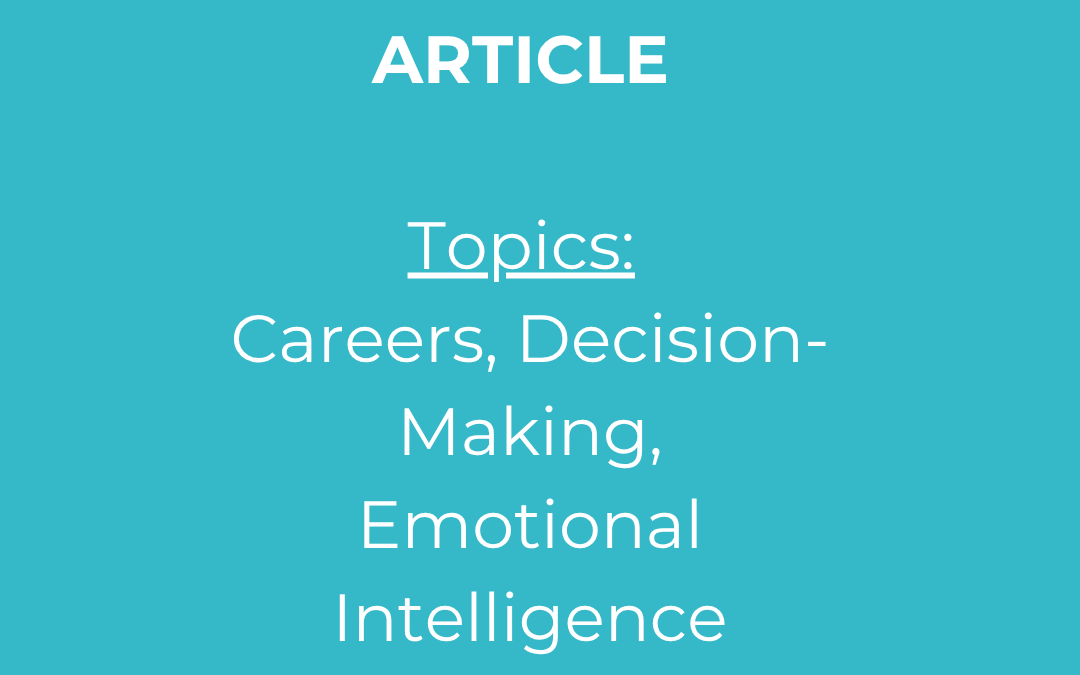Julian here! It’s been a busy few weeks, but I’m thrilled to be back in touch. Lately, I’ve thinking more about how we make important career decisions, in a way that aligns with the best version of the way we want to live and work. I’m especially thinking about those big, career-defining, choices we all face at some point.
We make countless decisions every day—whether to hit the snooze button one more time or what to have for breakfast—but the ones that are really important for the future deserve a little more attention, don’t you think?
Today, I want to chat with you about the art of making those difficult decisions, the ones that can really impact your career and future. Whether you are deciding to take on a new leadership role or making a strategic move in your career, these moments can be pivotal.
Through my own experiences—of moving between Europe and South America, changing my focus to a more consultancy oriented approach, and working with coaching clients in the legal field— I believe I’ve picked up some insights on what it takes to make these decisions in thoughtful and structured manner.
First up, let’s talk about how emotions sneak into our decision-making processes. It’s easy to think that all our decisions are purely logical, especially working in the legal world, but the truth is, our feelings have a lot more influence than we might realize. For example, stress can colour how we interpret information—ever misread an email as being more aggressive than it was? Yep, that’s emotions at play.
Emotional Intelligence (or “EI”) can help us balance the emotional and rational parts of our brains when we’re making decisions. Whether it’s being aware of how our emotions are affecting us, or using empathy to understand how our decisions impact others, EI can be like a secret superpower in the decision-making process.
And it’s not just about perception; our emotions also affect how we evaluate our options. Maybe the fear of conflict makes us shy away from taking a more assertive strategy, even if it’s what’s best in the long run. Or maybe the mood of a team can sway how effectively a decision gets implemented. These are just a couple of examples.
But here’s the upside: just by acknowledging these emotional influences, we can actually make better decisions. I think It’s really about finding a balance between understanding what makes us tick and applying logic.
This is also where the idea of structured decision-making (sometimes called “Decision Architecture”) comes in. Structured decision-making is all about creating a framework that helps us make clear, informed decisions without getting overwhelmed by too many options or letting biases steer the ship. Think of it as your blueprint for navigating tough choices without getting overwhelmed.
Here’s how it works:
- Defining Criteria: Start by figuring out what’s most important. Whether it’s your career goals, ethical standards, or firm values, having clear criteria helps you filter out the noise and focus on what really matters.
- Setting Timelines: We all know that rushing a decision can lead to mistakes, but taking too long can be just as bad. Setting realistic timelines helps you strike the right balance between thorough analysis and timely action.
- Bias Awareness: We all have biases—confirmation bias, overconfidence, you name it. The key is to recognize them and use tools like decision matrices to keep them in check. This way, your decisions become more objective and less swayed by unconscious influences.
And here’s where coaching comes into play. Coaching is an invaluable tool for refining your decision-making skills. It helps you reflect deeply and think critically about your choices. With powerful questioning and techniques like visualisation and role-playing, coaching can help guide you to uncover deeper insights and prepare for complex situations with confidence.
So, if you’re currently navigating some tough decisions—whether it’s a career move, a leadership role, or just figuring out your next steps—remember that you don’t have to do it alone. There are more and more professionals that are trained to help you through the process, with coaching and support to make sure you’re making choices that align with your goals and values.
If this resonates with you and you’d like to chat more, let’s grab a cup of coffee. I’d love to hear from you and help you on your journey.
Hope all is well in your world, and until next time, take care!
